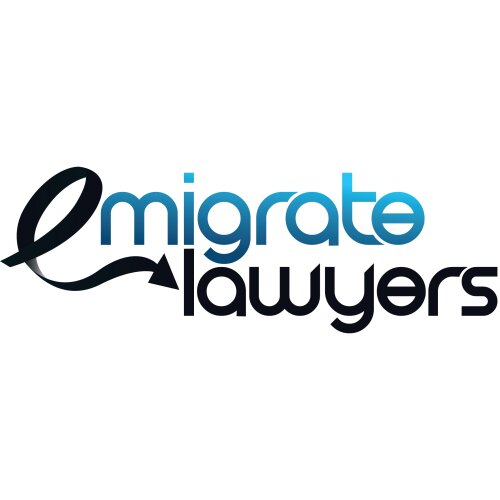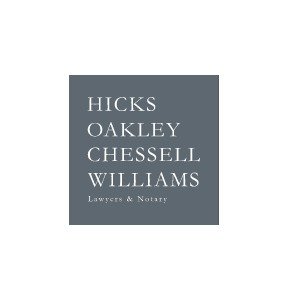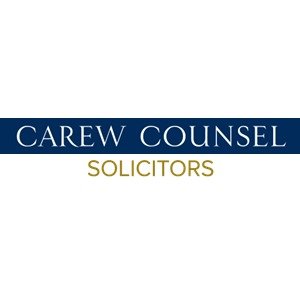Best Will & Testament Lawyers in Melbourne
Share your needs with us, get contacted by law firms.
Free. Takes 2 min.
List of the best lawyers in Melbourne, Australia
About Will & Testament Law in Melbourne, Australia
Will & Testament Law in Melbourne, Australia, revolves around the legal processes of drafting, executing, and managing wills and estates. A will is a legally binding document that outlines how a person wishes their assets to be distributed after their death. It can also include directives for guardianship of minor children and instructions for funeral arrangements. In Melbourne, the regulation of wills and estates is governed by both state and federal laws, ensuring the orderly distribution of a deceased person's estate according to their wishes.
Why You May Need a Lawyer
Seeking legal assistance in the area of Will & Testament can be crucial for several reasons. Individuals may require a lawyer when drafting a will to ensure it meets all legal requirements and accurately reflects their intentions. Complex family situations, such as blended families or estranged relationships, can add layers of complexity to estate distribution, necessitating legal expertise. Additionally, someone might need a lawyer if they wish to contest a will or if they are concerned about the possibility of someone contesting their own. Legal advice is also valuable when managing a deceased estate, especially in large estates or where tax obligations are involved.
Local Laws Overview
In Melbourne, Will & Testament laws are primarily governed by the Wills Act 1997 (Vic) and the Administration and Probate Act 1958 (Vic). These laws establish the criteria for a valid will: it must be in writing, signed by the testator (the person making the will), and witnessed by at least two people who are not beneficiaries. The laws also address situations where someone dies intestate (without a will), providing a statutory order of distribution of assets. The Probate Court of Victoria is responsible for the administration of deceased estates, ensuring that the deceased’s obligations are met before assets are distributed to beneficiaries.
Frequently Asked Questions
What happens if I die without a will in Melbourne?
If you die without a will, you are considered to have died intestate. The distribution of your estate will be governed by the statutory formula outlined in the Administration and Probate Act 1958 (Vic), which prioritizes spouses, children, and other relatives in a prescribed order.
Can I write my own will, and will it be legally binding?
Yes, you can write your own will, and it can be legally binding if it meets all the legal requirements. However, to avoid potential legal challenges, it is recommended to seek legal advice when drafting a will.
Who can contest a will in Melbourne?
In Melbourne, individuals who are eligible to contest a will include spouses, domestic partners, children, or any person who was supported or financially maintained by the deceased prior to their death.
Is it necessary to appoint an executor, and what is their role?
Appointing an executor is essential for the management of your estate. The executor is responsible for ensuring that your debts are paid, your wishes carried out as per your will, and the distribution of assets to your beneficiaries.
Can a will be amended or revoked?
Yes, a will can be amended through a codicil, or revoked and replaced by making a new will. It’s important to ensure any changes are done properly to avoid disputes.
How can I ensure my will is unambiguous and reflects my true intentions?
To ensure clarity and legal validity, consult a lawyer who specializes in estate planning. They can provide guidance on the language and structure of the will to reflect your true intentions accurately.
What factors make a will invalid in Melbourne?
A will may be declared invalid if it is not properly signed and witnessed, if the testator was under undue influence, lacked the mental capacity to make a will, or if there is evidence of fraud.
How are disputes over a will resolved?
Disputes over a will can be resolved through mediation, negotiation, or litigation in court. The Supreme Court of Victoria handles such disputes, and legal assistance is often necessary to navigate this process.
Are there taxes on inheritance in Melbourne?
Australia does not have an inheritance tax, but estate beneficiaries may be liable for capital gains tax on inherited assets when they are disposed of, depending on the nature of the assets and current tax laws.
What should I do if I am named as an executor in a will?
If you are named as an executor, your first step should be to obtain the will and contact a probate lawyer. You will need to manage the deceased’s estate, including paying off debts and distributing assets according to the will’s stipulations.
Additional Resources
There are several resources and organizations available for those seeking assistance with Will & Testament matters in Melbourne:
- Law Institute of Victoria: Provides resources and referrals for legal services.
- Victoria Legal Aid: Offers information and assistance for those in need of legal help.
- State Trustees: Provides will preparation services and estate management advice.
- Supreme Court of Victoria Probate Office: Manages the legal process of granting probate and administration of estates.
Next Steps
If you need legal assistance in matters of Will & Testament, consider the following steps:
- Consult a Lawyer: Research and consult with a lawyer who specializes in wills and estates for comprehensive advice tailored to your situation.
- Attend a Workshop: Attend a community workshop or seminar on estate planning to gain a better understanding of the process.
- Review Resources: Utilize the resources mentioned above to educate yourself further and seek relevant guidance.
- Begin Drafting: If you do not have a will, consider beginning the drafting process and ensuring it meets current legal standards.
Taking these steps will help ensure that your estate is managed according to your wishes and reduces the likelihood of disputes or legal challenges.
Lawzana helps you find the best lawyers and law firms in Melbourne through a curated and pre-screened list of qualified legal professionals. Our platform offers rankings and detailed profiles of attorneys and law firms, allowing you to compare based on practice areas, including Will & Testament, experience, and client feedback.
Each profile includes a description of the firm's areas of practice, client reviews, team members and partners, year of establishment, spoken languages, office locations, contact information, social media presence, and any published articles or resources. Most firms on our platform speak English and are experienced in both local and international legal matters.
Get a quote from top-rated law firms in Melbourne, Australia — quickly, securely, and without unnecessary hassle.
Disclaimer:
The information provided on this page is for general informational purposes only and does not constitute legal advice. While we strive to ensure the accuracy and relevance of the content, legal information may change over time, and interpretations of the law can vary. You should always consult with a qualified legal professional for advice specific to your situation.
We disclaim all liability for actions taken or not taken based on the content of this page. If you believe any information is incorrect or outdated, please contact us, and we will review and update it where appropriate.

















